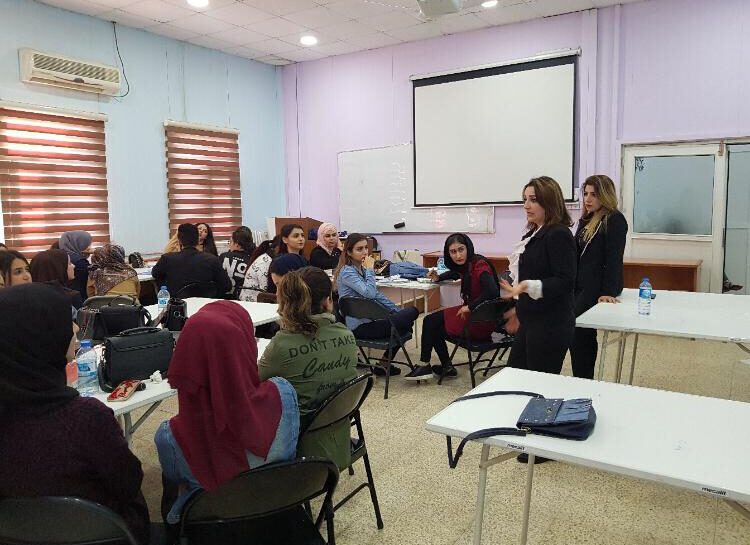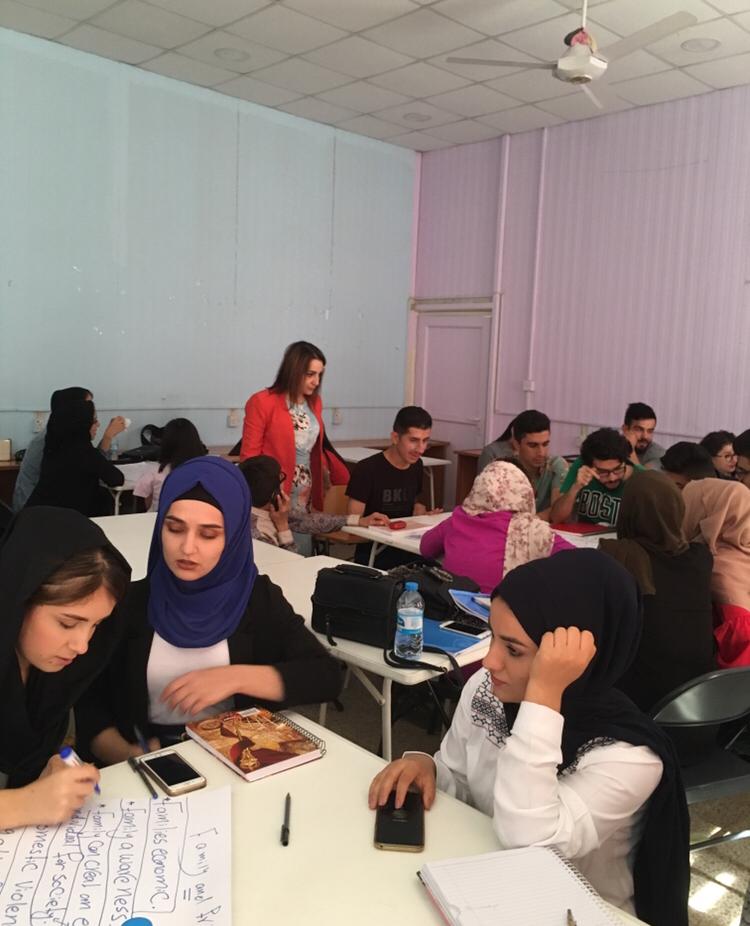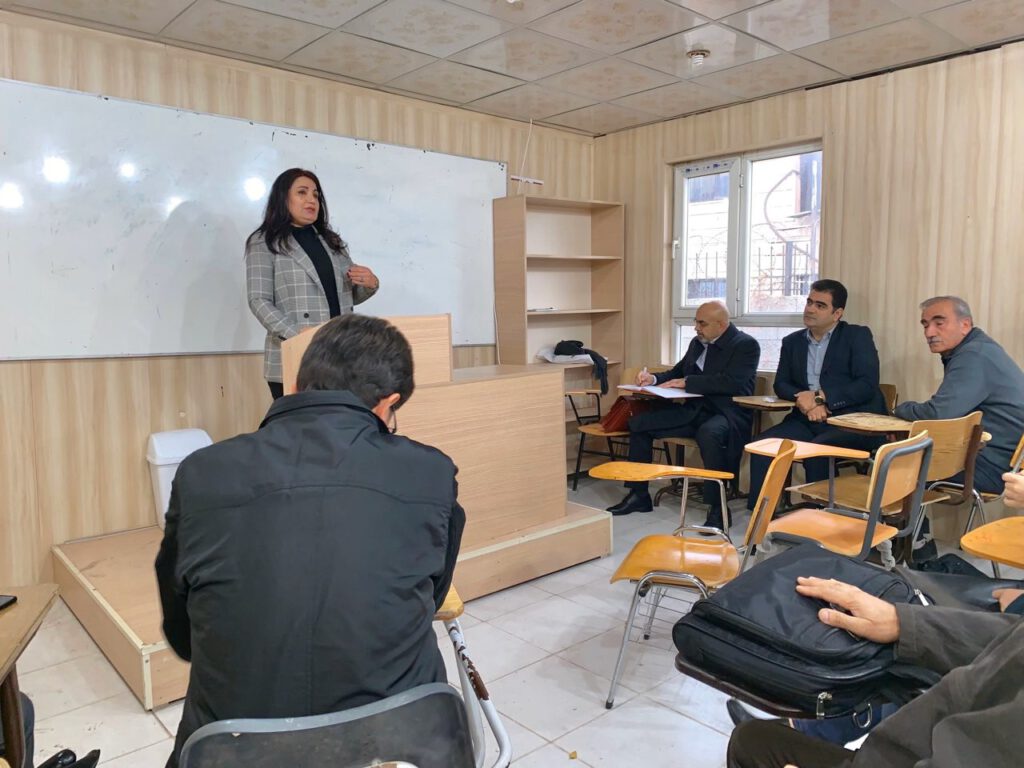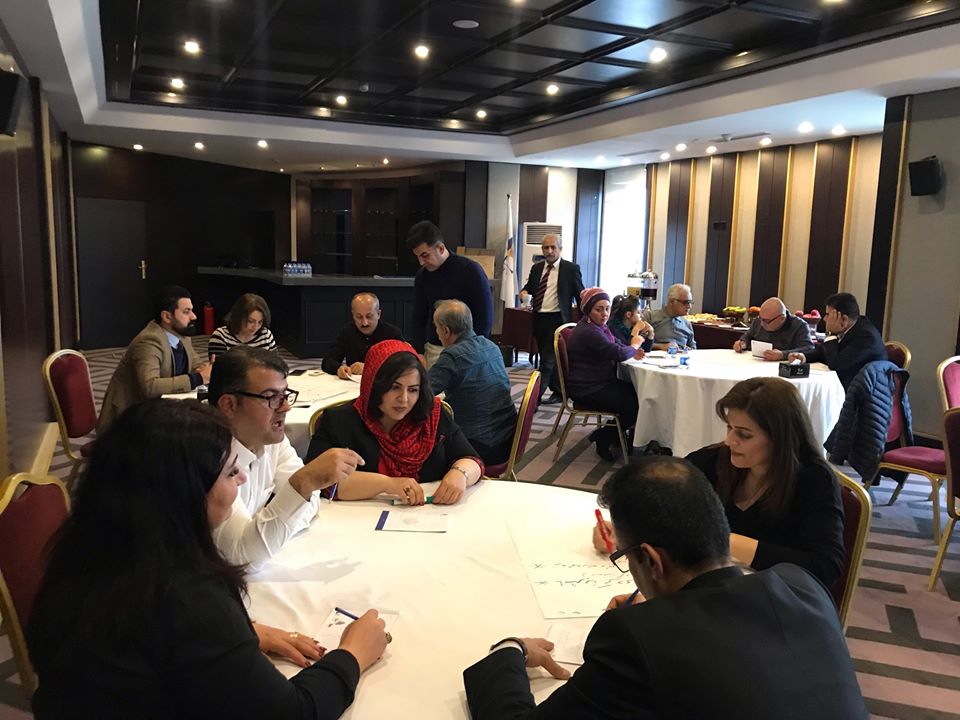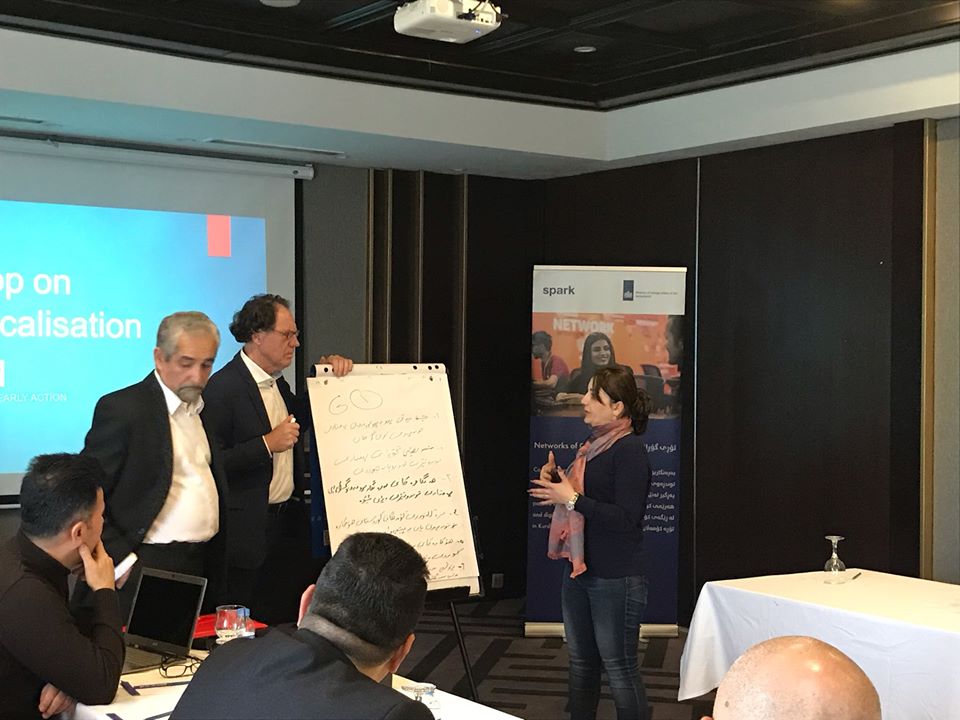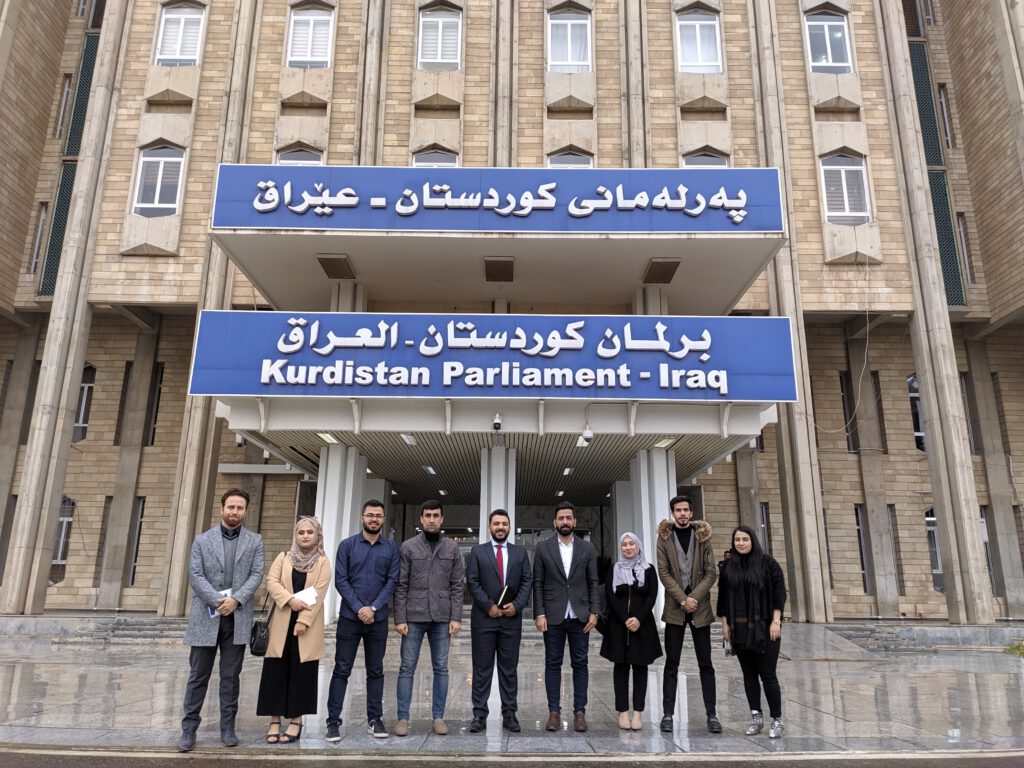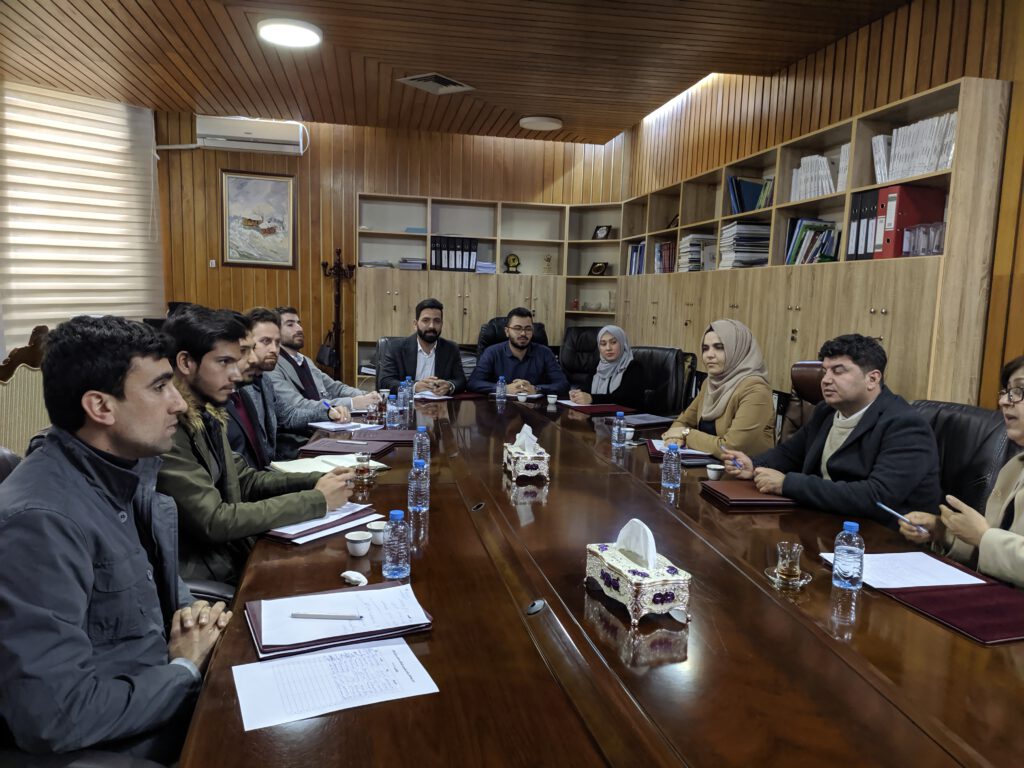Two women identifying radicalised youth in their classrooms
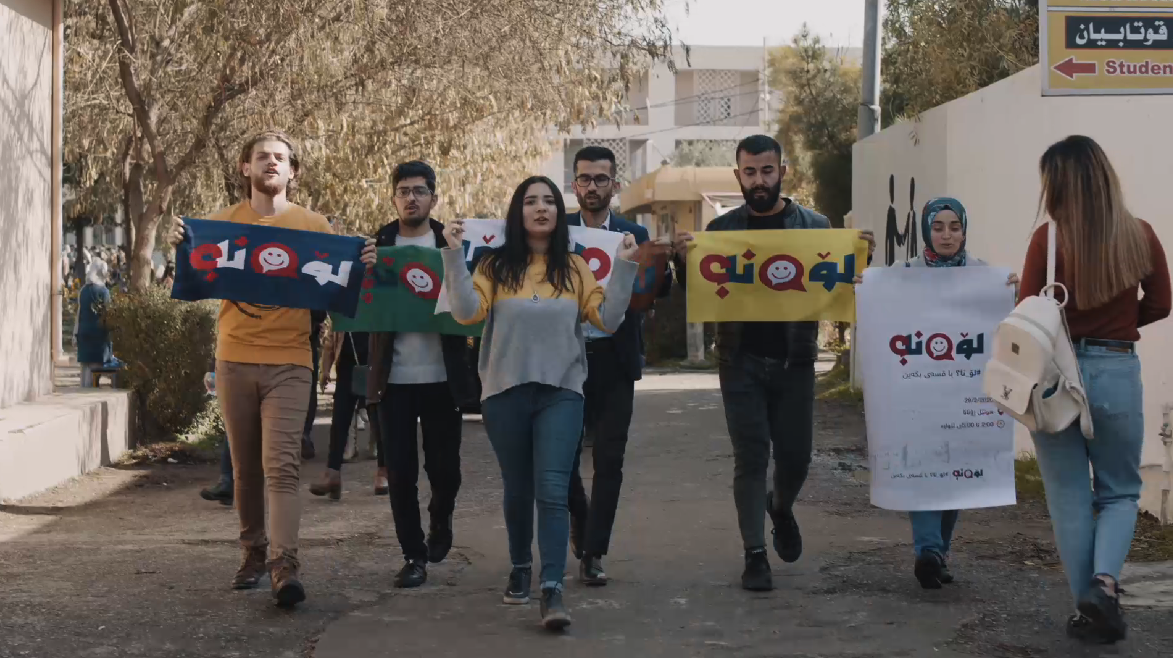
Iraqi Kurdistan’s physical battle with IS may be over but the war over the hearts and minds of the youth is still raging online. With positive digital campaigns and identifying the early signs of radicalisation, we can prevent it.
Colleagues at Salahaddin University in Erbil, Professor Hazha Mohammed Salih and Professor Juan Ismail Baker teach criminology and sociology respectively. They are two women on the front lines of identifying and preventing the radicalisation of their students.
“We don’t have a violent culture”, explains Professor Baker, “but when there is corruption and injustice then you pave the way for radicalisation. You make individuals hopeless and they start looking for alternatives”.
Professor Salih, who has been teaching young people in Erbil for 12 years, says: “There is a wide range of drivers of radicalisation but I will mention just a few: domestic violence, family segregation, and poverty”.
The semi-autonomous Kurdish region has been battling with IS since 2014. Since then, overall rates of violent behaviour have been increasing. The conflict has physically and mentally torn families apart, and the economic crisis in the region has plunged many into poverty. As well as increased rates of radicalisation, there has also been an increase in the prevalence of domestic violence and honour killings, especially in IDP camps, according to a 2018 report by the Danish Immigration Service.
Kurdo Omer, Head of the Combating Violence Against Women Directorate at the Kurdistan Regional Government (KRG) Ministry of the Interior, believes that social media plays a decisive role in the rise of violence among young people.
“According to our data, 80 percent of violence committed against women comes from the misuse of communication tools. By communication tools, I mean the current advanced technology, especially social media, which has become a deadly weapon against women”, she told Rudaw in 2019.
“We need to talk about these issues of radicalisation together, more openly” – Prof. Baker, Salahaddin University
“There are a set of reasons which pave the way for the growing violence coming from social media platforms. Firstly, the abundant free time of our women and men who spend most of their time on social media. Communications companies are stoking the fuel of social issues, too…The companies have some detrimental offers for the youth, becoming free of charge from 12am and paving the way for youth to manipulate it for wrong use”.
The same is true for young people vulnerable to extremist views. Social media in KR-I is littered with surreptitious expressions of nationalism, tribalism and religious pride, aiming to recruit Kurdish young people to radical causes.
Professor Salih, from Salahaddin University, notices the students in her class that are in the process of radicalisation. “It starts with isolation and staying away from friends. Being against everyone. Some of my students started to strongly refuse different ideas and opinions”.
Salih is one of almost 300 educators that SPARK is training to identify the early signs of radicalisation among youth. The Networks of Change (NoC) programme is bringing together social workers, parents, as well as secondary school teachers and university professors from across the Kurdish cities of Erbil, Sulaymaniyah and Halabja, to collectively recognise and respond to the early stages of violent extremist behaviour.
Simultaneously, the programme enables young people themselves to tackle online radicalisation. NoC trains a group of 14 Kurdish youth with digital and communication skills that enable them to create their own online awareness campaign about radicalisation and the lack of dialogue surrounding issues affecting young people in Kurdish politics and society. The ‘Youth Campaign Workforce’, which is based in Erbil, is due to launch their campaign, ‘Lo Na?’ (meaning: ‘Why Not?’) in April 2020.

Zana Haji, 27, a member of the workforce, explains: “In this campaign we are trying to reach out to the people who are not participating in anything, to make them aware that they also can have a say and make a change”.
Haji, who has been part of the campaign team for four months, realised that he could be part of the solution for radicalisation. “As a young man from Erbil, this campaign is important for me because it’s building my network with my peers. We exchange ideas and learn how to raise our voices in a peaceful way.
“We have been meeting with government officials, parliament members, university teachers and all kinds of people who are now willing to listen and support us. We feel like we have value”.
Gradually, IS seems to be resurging. Lahur Talabany, a top Kurdish counter-terrorism official, told the BBC at the end of 2019 that IS is estimated to be 10,000 strong in Iraq with between 4,000 and 5,000 fighters.
While online recruitment is a real and dangerous threat to vulnerable young people, internet shutdowns and censorship would not address the root causes or social issues that encourage youth to radicalise.
After receiving training in how to identify radicalised youth, the two Salahaddin University professors both offer solutions: “Young people need more free time to do what they like in order to keep them busy, to use their energy well”, explains Professor Salih. “More job opportunities could make a big difference as well”.
“We need to talk about these issues of radicalisation together, more openly”, says Professor Baker. Both agree there is no time to lose.
Related news
-
![]() Event
EventEmpowering voices: Networks of Change 2 campaigners receive comprehensive media training in Erbil
-
![]() Event
EventGazan women: Against all odds
In Gaza, where war has destroyed homes, businesses, and entire livelihoods, women entrepreneurs continue to fight for survival. Forced to…
-
![]() News
NewsAdvancing green and circular economy in the MENA region: Women’s role and challenges
In this opinion piece, SPARK colleague Afef Ajengui, Green Forward programme manager, explores the ecosystem, challenges, and opportunities for women…
-
![]() Event
EventSyrian women entrepreneurs paving the way for recovery
For International Women’s Day, we spotlight the resilience and ingenuity of Syrian women entrepreneurs navigating one of the world’s most…
-
![]() Event
EventThe Palestine Launchpad with Google Hackathon (3rd Edition): Building Palestine’s Tech Ecosystem
-
![]() Event
EventIGNITE Syria: What you missed and why it matters
-
![]() Event
EventSPARK Wins Prestigious Digital Prosperity Award for Ethical Digital
-
![]() News
NewsBridging innovation and digital transformation: Palestine’s knowledge exchange experience in Egypt
In the context of business development, digitisation refers to converting traditional functions into digital formats to enhance efficiency, such as…
-
![]() Event
EventIGNITE Syria: Enabling Communities to Rebuild and Rise
After years of crisis, Syria is taking cautious steps towards rebuilding. The IGNITE Conference 2025, held in Damascus, will bring…
-
![]()
8 Reasons why you should join the Maharat for Tourism E-Learning Hub
-
![]()
Stronger together: How Kurdistan’s communities are leading the fight against extremism
-
![]()
“The Future of Entrepreneurship” Conference opens dialogue on supporting start-ups, SMEs, and the entrepreneurial ecosystem in Palestine
-
![]()
Gaza: Ceasefire agreement must pave the way for hope, justice, and meaningful Peace

